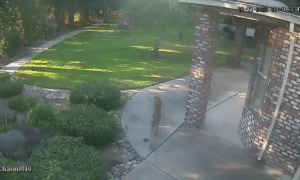“This post contains affiliate links, and I will be compensated if you make a purchase after clicking on my links.”
By Chris Lesley
Dogs have a reputation for chasing birds, squirrels, and other small critters around the yard. This sounds problematic if you’re planning on raising backyard chickens, but thankfully, it doesn’t have to be!
Taking the right steps to introduce your dog to your new chickens can prevent problems like chasing or aggression, and promote a peaceful relationship instead.
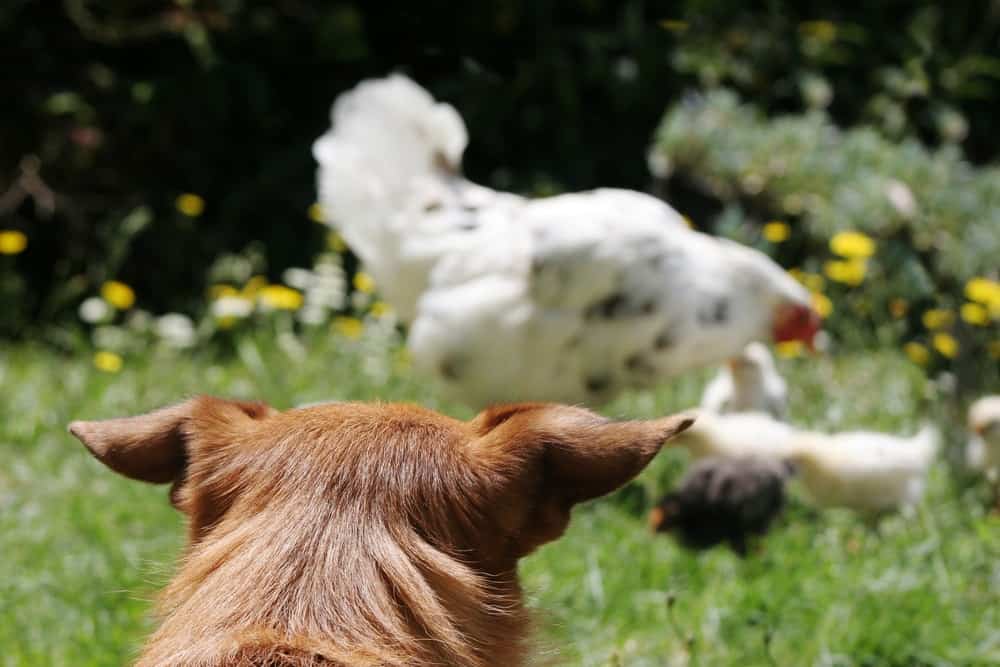
Choose the Right Breed of Chicken
Just like dog breeds, different breeds of chickens have different personalities. Certain breeds will be flighty, nervous, or hostile when they interact with a dog, all of which are behaviors that would make it hard for your dog to coexist with your birds. So, let me suggest a breed that does not exhibit those traits: the Rhode Island Red.
Rhode Island Reds are great beginner birds for both you and your dog. They can thrive in any climate, have few health issues, and are typically docile. They get along with most other birds, especially birds that have the same temperament. Since dogs are usually just as explorative and outgoing as Rhode Island Reds, their personalities make for a promising match.
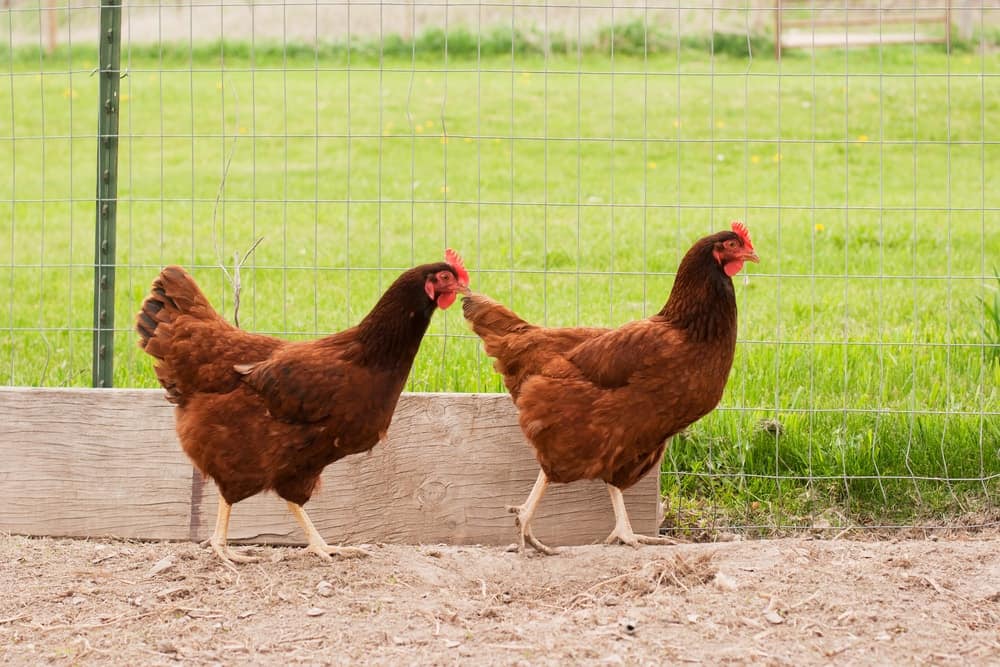
Not only that, but it takes a lot to make a Rhode Island Red get flustered or panicked. If your dog barks or tries to play with these chickens, they will keep their wits about them much better than other types of chickens would.
Introduce Other Friends
The more experience your dog has with a broad range of other animals, the more likely he is to socialize well with your chickens. If your dog has never spent time with other animals, sharing a yard with an unfamiliar species can be frustrating or scary. Consider bringing your dog to a park to meet other dogs, or setting up a doggy playdate with a friend’s dog. The way he behaves in these interactions will be a good indicator for how he will behave with your chickens, and this can show you what to watch out for.
Start Small
You should only introduce your dog to a few of the chickens in the first interaction. You don’t want to overwhelm your dog, so it is best to begin with no more than six birds at a time. Also, you should introduce them in a relatively small area or pen. If you have a large yard or property, limit their area to no more than 150 square feet. This way, it will be easier to control the animals if either your dog or your chickens become overly aggressive or playful with one another.
Once they have shown that they can get along well, you can let your dog interact with more of the chickens, in the whole yard. However, you should maintain close supervision for at least a few weeks before letting them be alone together.
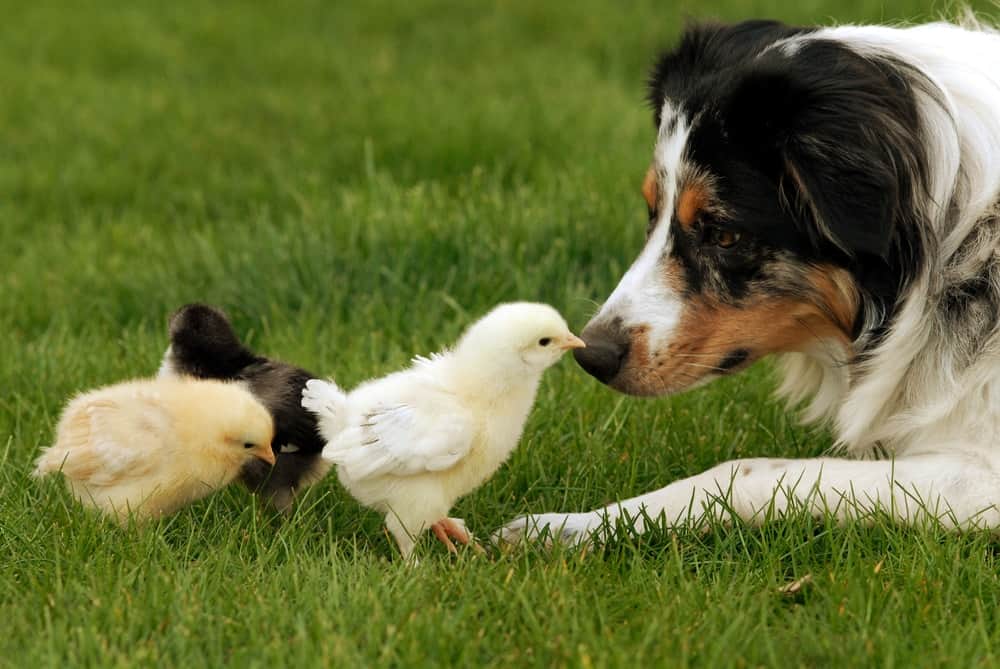
Respond Quickly and Positively
As soon as things start to go awry, you need to separate your dog from the chickens. You will have to be very attentive and supervise the whole meeting to keep all of your animals safe! Here are a couple ways to quickly address misbehavior:
- Have your dog on a loose chain or leash. This will maximize your control over the interaction, without making him feel too restricted.
- Use a training aid. Noise-making devices, like a horn or dog whistle, are a great option to alert your dog that what he is doing is wrong, without punishing him.
- Be straight-up and tell him “no.” Be stern, but don’t yell.
Remember, dogs learn better when they are rewarded, not punished. Punishment can make the animals anxious, and may negatively affect future interactions. If he behaves well, be sure to show him some affection by petting him or giving him a treat.
Consider the Age of Your Dog
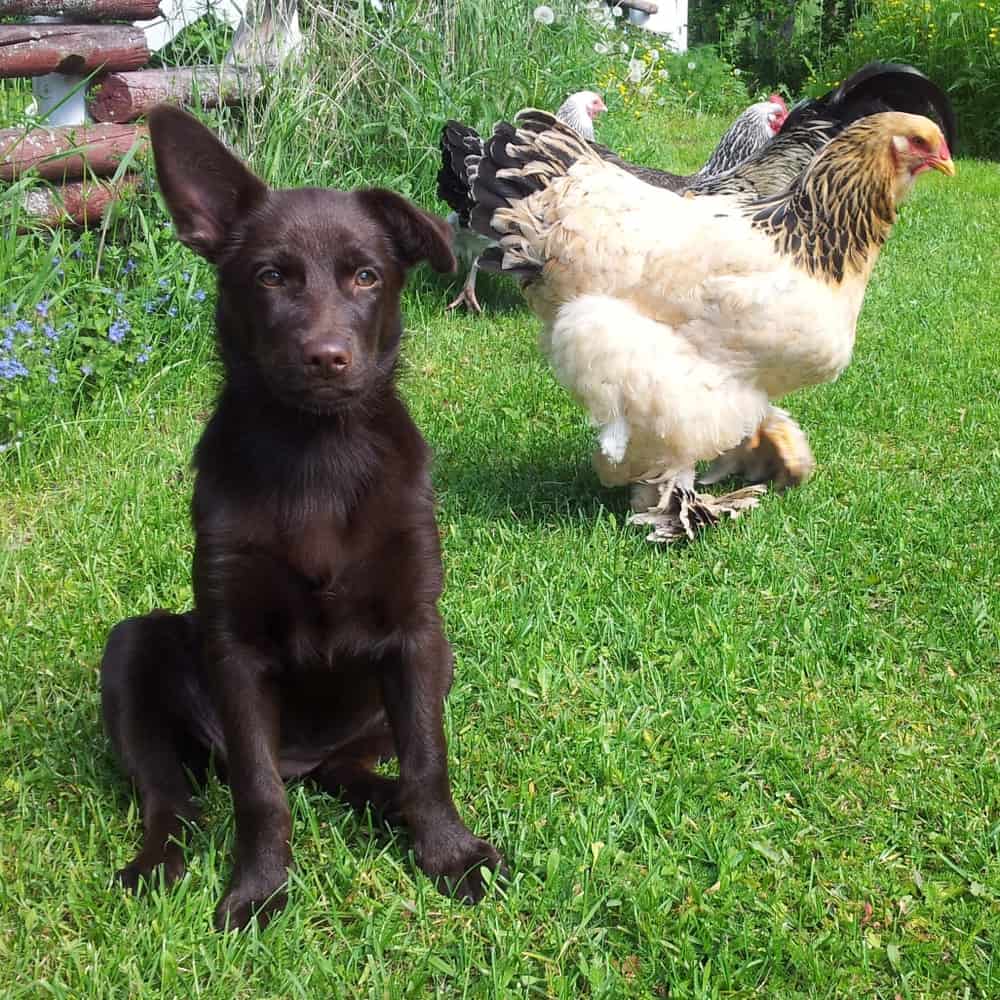
Puppies are naturally able to learn social skills better than older dogs. Of course, some old dogs can learn new tricks, but if you have an older dog you will have to commit a lot more time and energy to the process than you would if your dog was a puppy. If you have introduced your older dog to chickens several times without seeing any positive results, don’t give up! Just be patient, continue giving your dog positive feedback for good behavior, and keep the safety of your pets a top priority as they grow accustomed to one another.
Even if they don’t become best friends right away, taking the appropriate steps will help your dog to coexist peacefully with your chickens. It may take time, patience, and an attentive eye on your part, but it is possible!
Chris has been raising backyard chickens for over 20 years and is Chickens And More poultry expert. She has a flock of 11 chickens (including 3 Silkies) and is currently teaching people all around the world how to care for healthy chickens.















